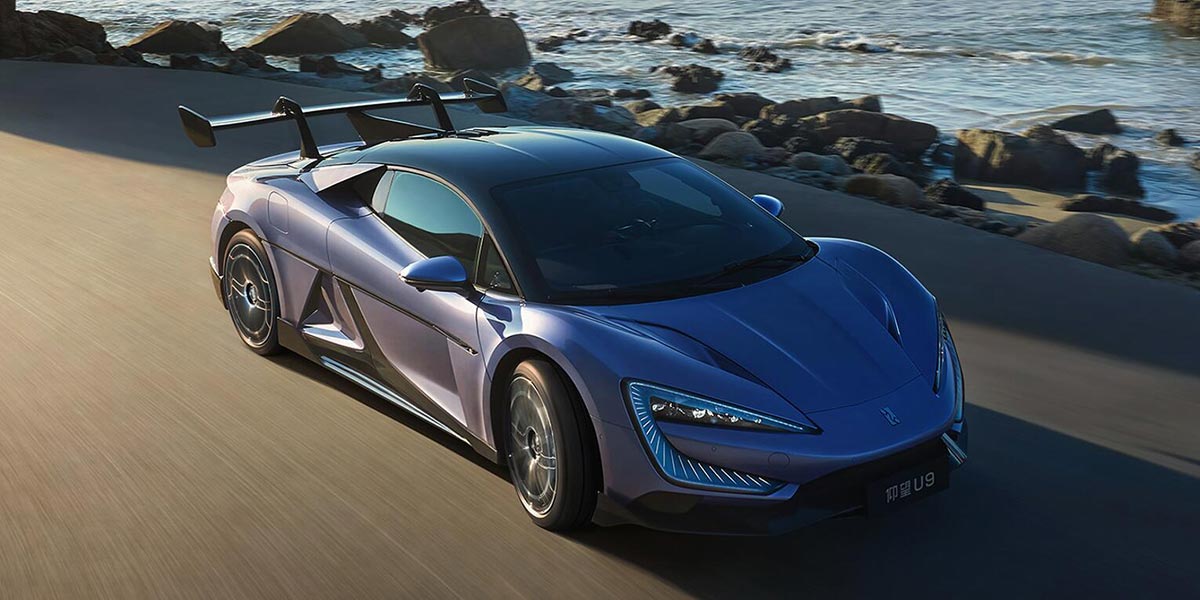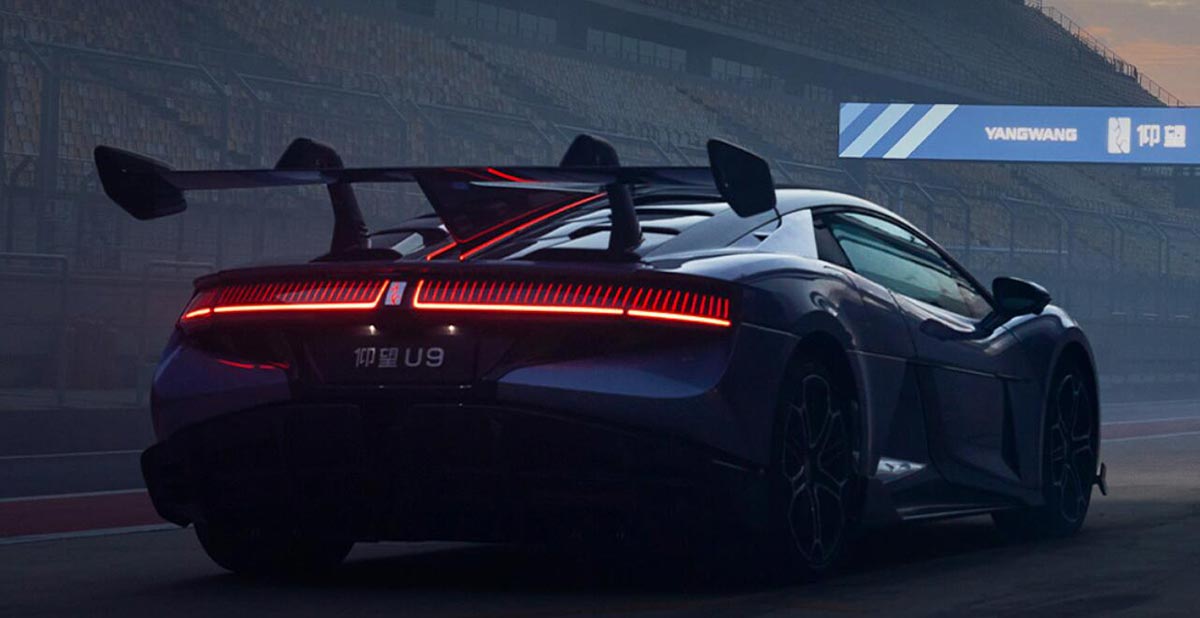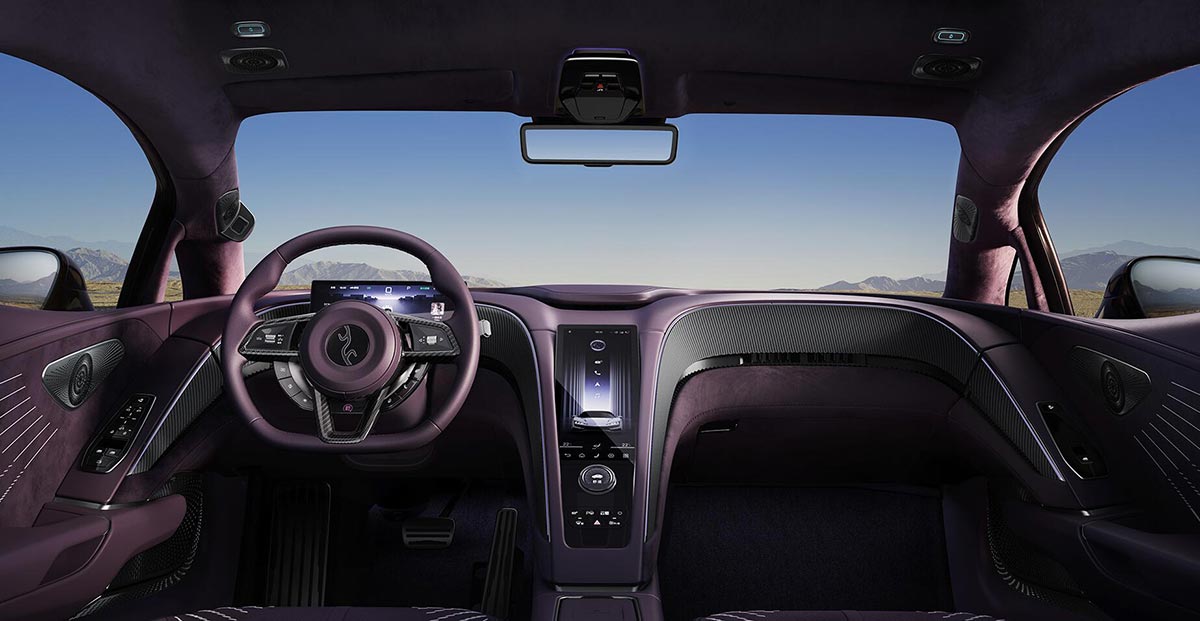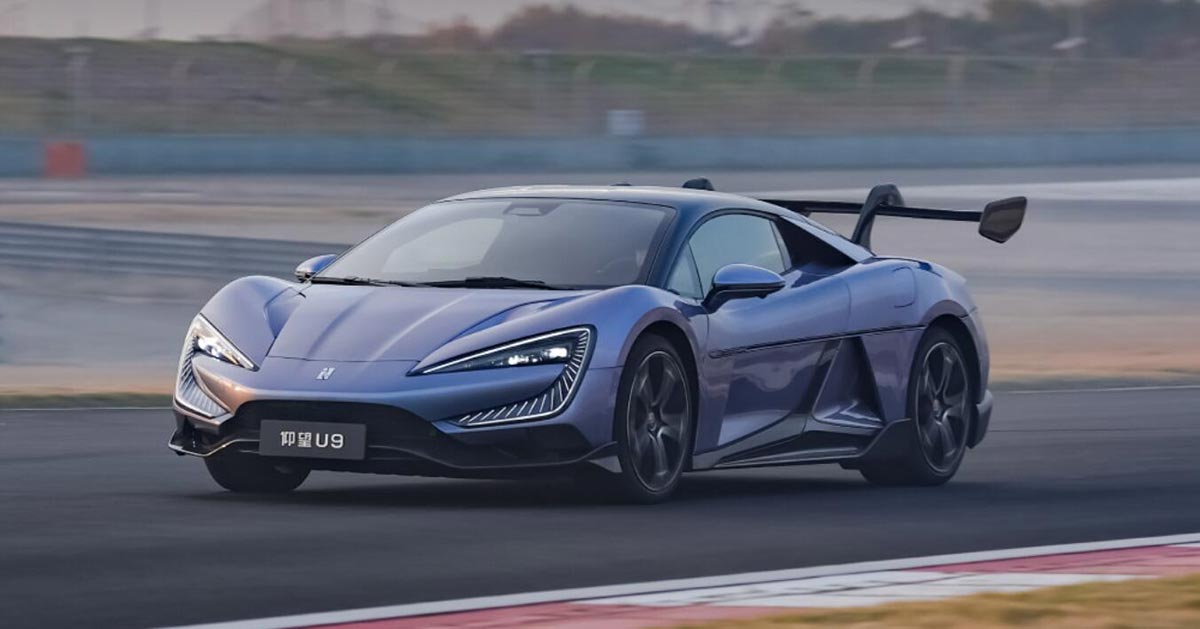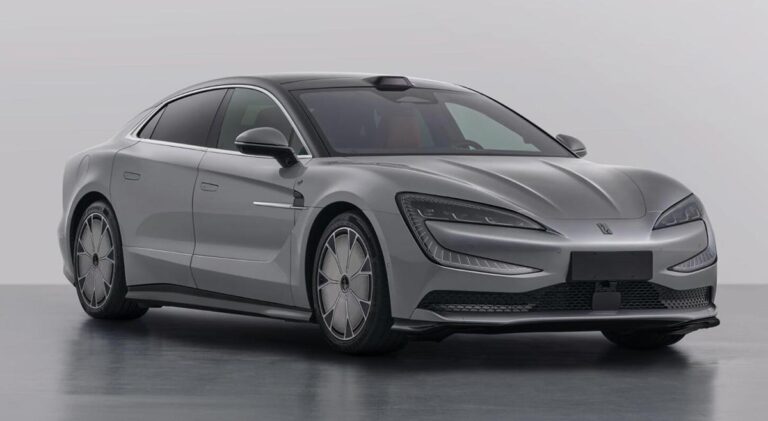The Yangwang U9's powertrain delivers up to 1,306 horsepower, allowing the vehicle to sprint from 0 to 100 kilometers per hour in 2.36 seconds.

(Image credit: Yangwang)
BYD's (OTCMKTS: BYDDF) premium brand Yangwang has launched the U9 electric supercar, the second production vehicle from the new brand after the U8 off-road SUV.
Yangwang rolled out the U9 at a launch event in Shanghai today, with only one version of the 2-seat model available at a starting price of RMB 1.68 million ($233,500), higher than the RMB 1.098 million price tag for the U8.
The Yangwang U9 measures 4,966 mm in length, 2,029 mm in width and 1,295 mm in height, with a wheelbase of 2,900 mm.
The model is a battery electric vehicle (BEV) with four motors, each with a peak power of 240 kW and a combined peak power of 960 kW.
Its powertrain delivers up to 1,306 horsepower and 1,680 Nm of power output, allowing the vehicle to sprint from 0 to 100 km/h in 2.36 seconds. Yangwang said that performance exceeds that of a model with a 12-cylinder engine.
It is based on the 800 V high-voltage platform and is powered by an 80-kWh-capacity blade battery with a combined CLTC range of 450 kilometers.
Similar to models from BYD's other premium brand Denza, the Yangwang U9 supports simultaneous charging with two charging guns and can charge from 30 percent to 80 percent in as little as 10 minutes.
The Yangwang U9 is equipped with BYD's DiSus-X, the most advanced branch of the body control system that BYD launched in April 2023. BYD demonstrated the Yangwang U9's ability to dance, jump and drive even with just three wheels at the launch of the DiSus system.
The DiSus-X system is capable of up to 36 kW of power and the suspension has a maximum adjustable travel of 75 mm, Yangwang said today.
The Yangwang U9 features BYD's DiLink cockpit system and DiPilot assisted driving system, and is equipped with a 5G chip based on a 4 nm process co-developed by BYD and Qualcomm.
The car has a variety of built-in modes that allow owners to demonstrate features including vehicle dancing and tank turns.
Customers ordering the Yangwang U9 now need to pay a deposit of RMB 300,000, which is non-refundable after the order takes effect.
Yangwang is offering a six-year or 150,000-kilometer vehicle warranty on the U9 and a lifetime warranty on the battery, motor, and electronic controls for the first owners.
To date, Yangwang's direct offline stores have covered 36 cities including Beijing, Shanghai, Guangzhou and Shenzhen, with new stores opening soon in 11 cities including Xuzhou, Nantong and Shenyang.
BYD officially launched Yangwang -- a brand aiming for a price tag at the RMB 1 million level -- on January 5, 2023, when it gave the U8 as well as the U9 their debut.
BYD unveiled the e⁴ technology platform at the launch of the Yangwang brand, stating that the entire range of the premium brand's future models would be built on the platform.
Yangwang U8, Yangwang's first production vehicle, went on sale on September 20, 2023, with deliveries starting on November 24.
Yangwang U8 delivered 1,593 vehicles in December and 1,652 in January, according to data compiled by CnEVPost.
In addition to the U8 and U9, Yangwang unveiled its first sedan, the U7, on January 10, which will be the flagship new energy sedan in the RMB 1 million class.
The Yangwang U7 will have more than 1,000 Ps of horsepower and will push the limits of sedan performance, it said last month. Yangwang has not announced an official launch date for the U7.
For more than a decade, BYD's auto business has targeted the low-to mid-end market. With the rapid growth of the new energy vehicle (NEV) industry, the company sees an opportunity to enter the high-end and ultra-luxury markets amid rapid change.
BYD said in an announcement earlier this month that it is targeting to gain a leading position in the premium market with a number of premium models in 2024.
Hot sales of premium-brand models, including the Yangwang, Denza and Fang Cheng Bao, have boosted BYD's profitability and enhanced the company's brand image, it said in the announcement.
($1 = RMB 7.1959)
